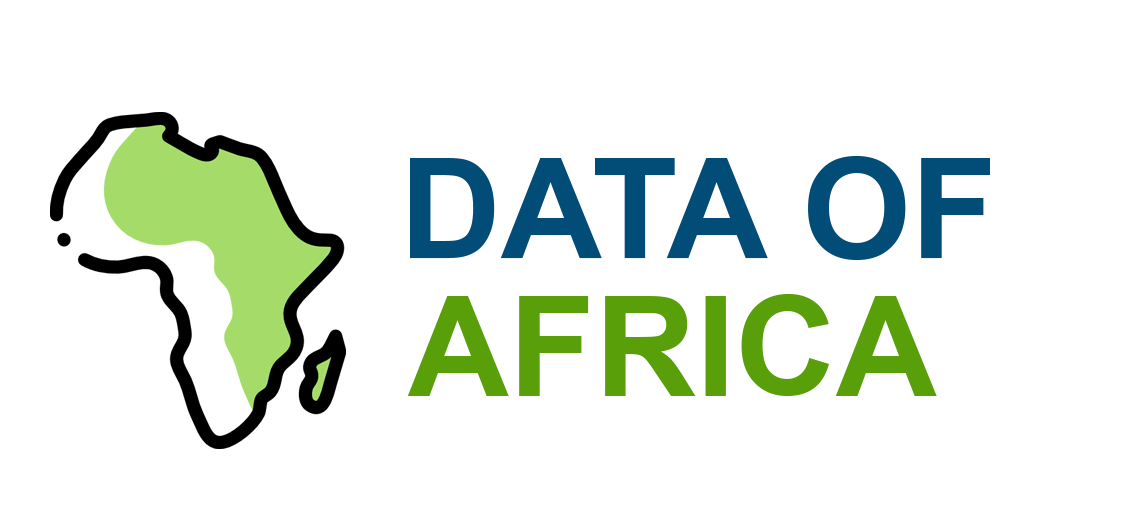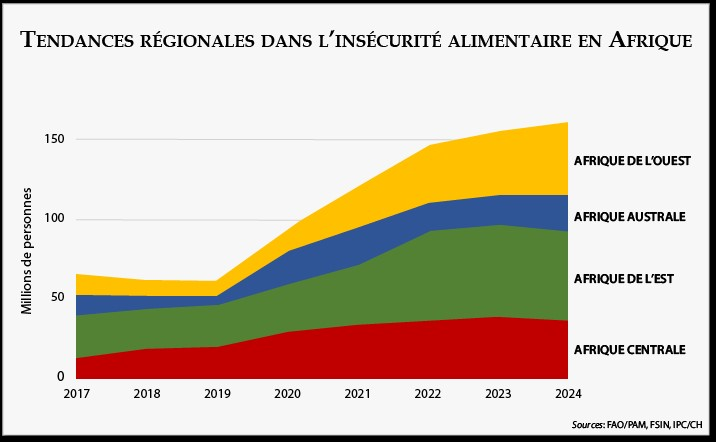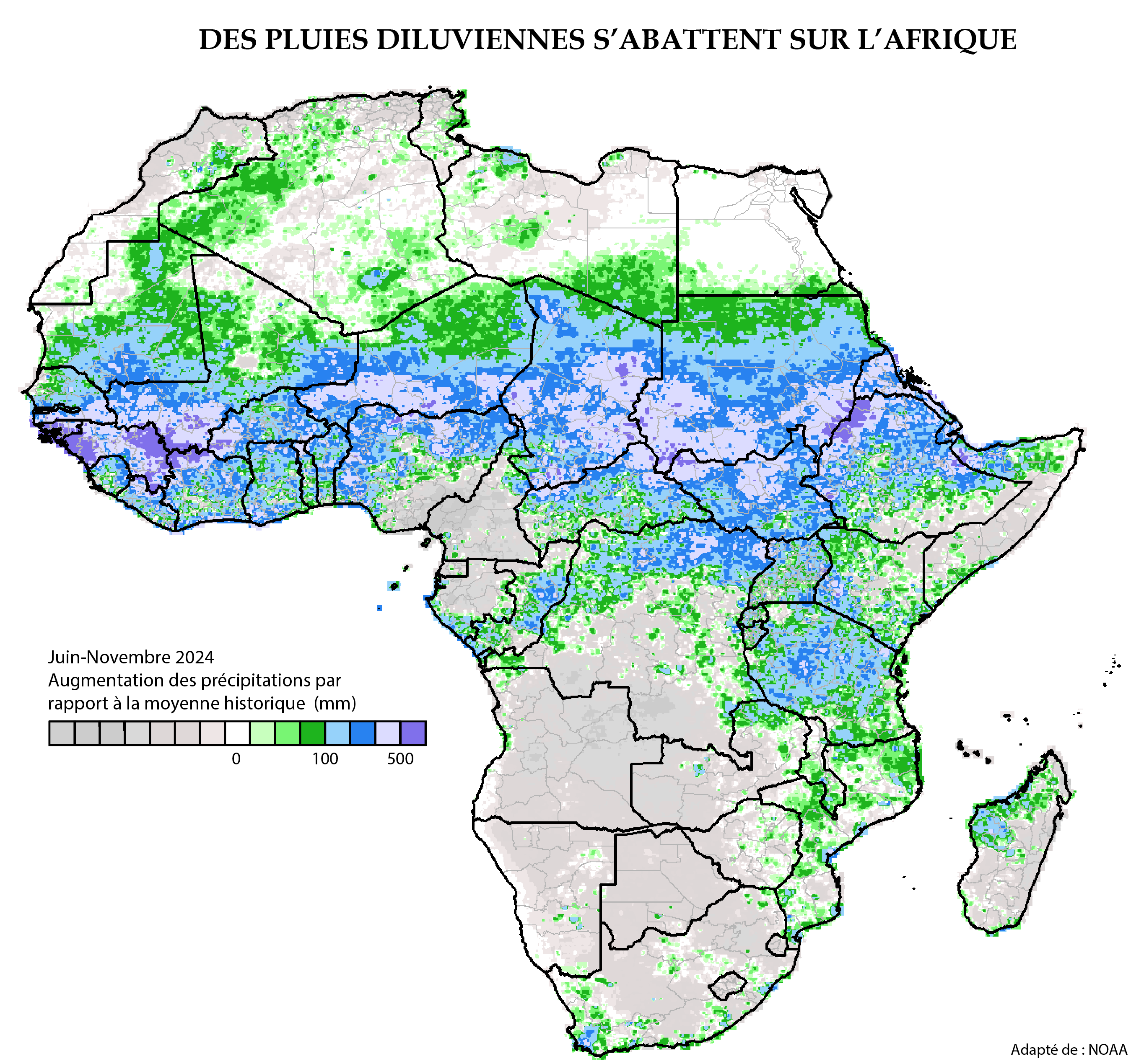Acute food insecurity affected 163 million Africans in 2024, or more than 10% of the continent’s population. This figure has nearly tripled in the past five years, highlighting the rapid escalation of the food emergency in Africa.
80% of Africans facing acute food insecurity are in countries affected by conflict. Famine has been confirmed in Sudan and parts of South Sudan and Mali.
While Nigeria, Sudan, and the Democratic Republic of Congo are the three countries with the highest number of people experiencing acute food insecurity, with more than 20 million people in each country experiencing at least crisis levels of food insecurity, more than 10% of the population in 23 of Africa’s 54 countries are acutely food insecure.
In 2024, 27 countries in tropical Africa experienced heavy rainfall compared to their historical average. This caused thousands of deaths, the displacement of millions of people, and the flooding of millions of hectares of crops.
While exceptional rainfall across the tropics acted as a trigger, governance factors such as disaster management capacity, transparency, and democracy played a critical role in limiting the number of people affected by the floods.
The cumulative effects of natural disasters on poor governance reveal a pattern in which 13 of the 27 flood-affected countries are also in conflict. The latter, beyond revealing high levels of social friction, diverts resources from resilience and disaster response.
(*) : Africa Center for Strategic Studies
For more information :
- https://fr.wikipedia.org/wiki/Portail:Afrique
- https://en.wikipedia.org/wiki/Africa
- https://africacenter.org/
- https://journals.openedition.org/etudesafricaines/
- https://etudes-africaines.cnrs.fr/
- https://journals.openedition.org/etudesafricaines/
- https://www.afdb.org/fr/documents-publications/economic-perspectives-en-afrique-2024


